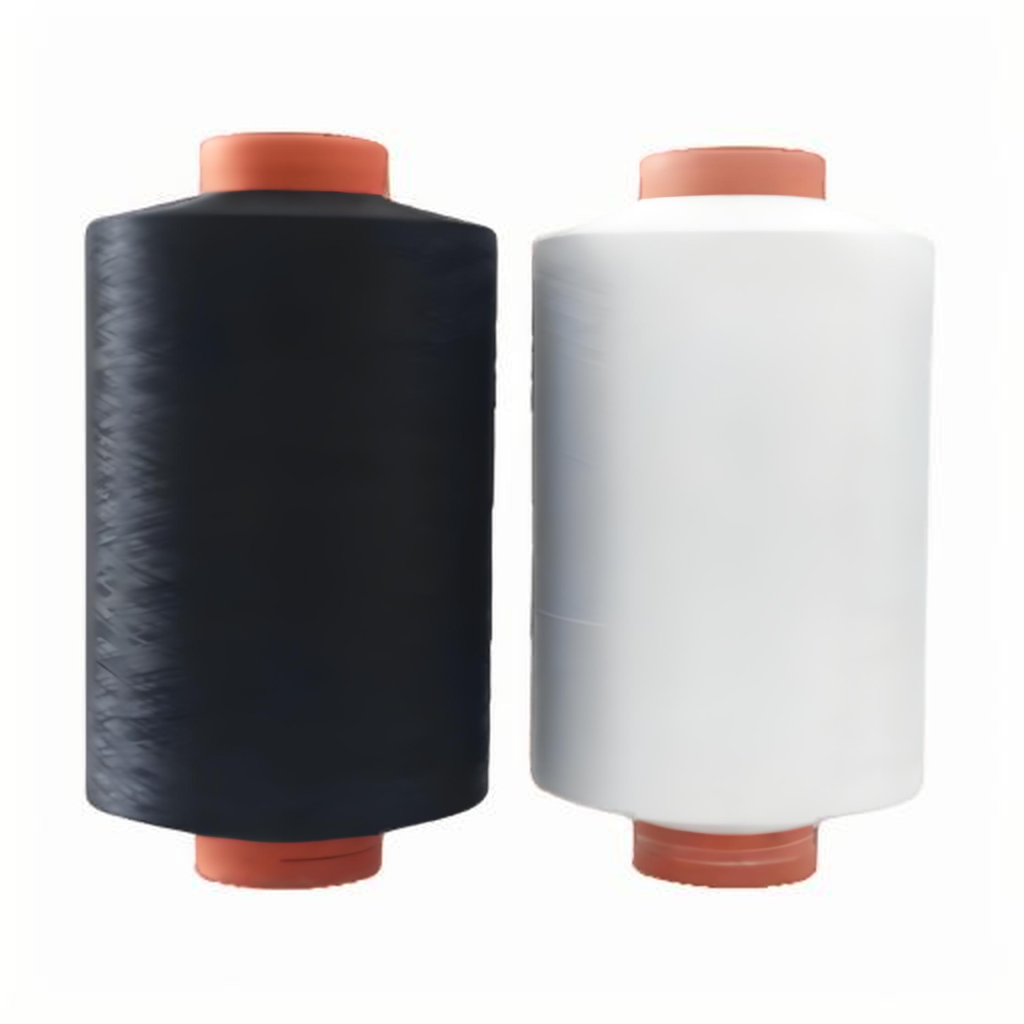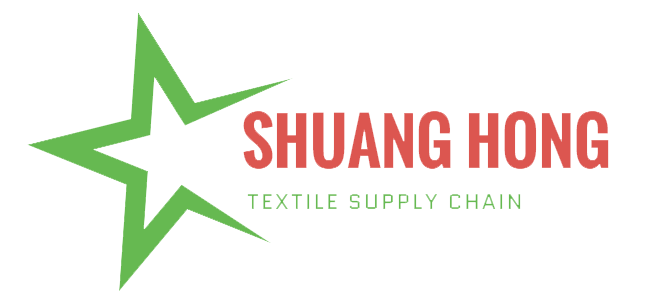Imagine wandering among machines and people active with various materials throughout the textile industry’s vibrant manufacturing lines. Being a fabric maker puts you in a dilemma: Which yarn should your most recent creation use? Though recently there has been increasing excitement about Polyester Spun Yarn, you have used cotton and wool yarns for decades. More and more companies are choosing it, and you have to ask, Why is Polyester Spun Yarn becoming the favored choice? What distinguishes it from conventional yarns?
Your interest is shared by many; 70% of producers have already switched. But what sets Polyester Spun Yarn apart? Is it the caliber? The value for money? Maybe its lifetime and weather resistance as well? Let us investigate the causes of this rising tendency. By the end of this study, you will possess all the knowledge required to grasp why Polyester Spun Yarn has come to rule the textile sector.

Polyester Spun Yarn Manufacturer
Production Process of Polyester Spun Yarn and Material Selection
High-quality polyester fibers, a synthetic polymer created from petrochemical compounds, make up Polyester Spun Yarn. Unlike conventional yarns derived from cotton, wool, or other natural fibers, Polyester Spun Yarn presents numerous notable benefits in terms of strength, lifetime, and adaptability. Engineered to be very robust and resistant to environmental factors including UV radiation, water, and heat, spun yarn’s polyester fibers When compared to natural fibers, which disintegrate more quickly under the same circumstances, polyester fibers are also less prone to wear and tear.
Polyester is also quite constant, so the yarn made from it is homogeneous in texture, which is crucial for producing a high-quality, long-lasting end product. For producers that need exact dimensions and consistent yarn qualities, this consistency is vital.
Moreover, polyester may be readily mixed with different fibers as cotton, viscose, or nylon, so enabling producers to combine the best of both worlds. The natural strength and longevity of polyester may improve the characteristics of these fibers, hence producing a balanced yarn that works effectively in many uses.
Manufacturing Method:
Several phases in the creation of Polyester Spun Yarn guarantee the finished product satisfies exacting quality criteria. Here is a step-by-step summary of the procedure:
Polymerization: Polyester fibers begin their path at the polymerization stage. The basic materials—such as terephthalic acid and ethylene glycol—are chemically mixed at this stage to produce polyester chips. Melted and extruded from these chips, continuous filament fibers follow.
The filament strands are subsequently spun into yarn by a spinning process, which can be wet or dry. The twisting keeps the fiber flexible enough for many fabric uses and develops a structure that improves its strength.
Blending: Occasionally, polyester fibers are mixed with natural fibers like cotton or wool to improve certain properties. For instance, when combined with cotton, polyester may strengthen the fabric while also aiding its form and color retention over time.
Polyester yarns are heat-set to increase their robustness. This guarantees the yarn keeps its shape throughout usage and fights distortion from heat or moisture.
Various finishing treatments can be performed once the yarn is spun. Depending on the intended purpose of the yarn, they might include flame-retardant treatments, anti-static coatings, or anti-pilling treatments. Whether for fashion, outdoor equipment, or industrial uses, this step lets producers tailor the yarn for certain requirements.
Features and Benefits of Polyester Spun Yarn (Compared to Regular Yarn) Durability:
Its longevity is among the most notable qualities of Polyester Spun Yarn. Unlike natural fabrics like cotton or wool, which are more prone to deterioration from environmental influences, polyester is extremely resistant to UV radiation, water, and mildew. Products that must survive outside environments, like tents, outdoor clothing, and furnishings, are most suited for this.
Compared to conventional yarns, polyester spun yarn is less likely to fray, pill, or shrink. Its strength guarantees the durability of the finished product by allowing it to keep its structural integrity even under great stress. Manufacturers who need high-quality, consistent goods over time would find this capability extremely helpful.
Resistance to moisture:
Polyester Spun Yarn’s moisture resistance is another important benefit. Unlike natural fabrics, which tend to absorb water, polyester resists moisture. This makes it a great option for outdoor equipment, sportswear, and activewear. Polyester Spun Yarn dries fast, which stops the growth of germs, mildew, or mold. Fabrics constructed from polyester also resist water stains and keep their look even after rain or perspiration exposure.
Color Preservation:
Polyester Spun Yarn is also quite good in color retention. Washing, sun exposure, and wear cause natural fibers to fade with time. On the other hand, polyester’s color-fastness is better, so it keeps its brilliance longer. Even after several washes, polyester fibers resist fading and yellowing, making it the perfect yarn for items that must keep their look over time, including fashion textiles, sports team uniforms, and home furnishings.
Economic Efficiency:
Though the first investment in Polyester Spun Yarn could be a bit more than some natural fibers, over time it is more affordable. Polyester yarns need less regular replacement because of their durability, moisture resistance, and color retention, which helps producers save money. Polyester yarns also often need less upkeep as they don’t need the same attention as fragile natural fibers. For producers trying to lower running expenses without compromising quality, this is a great option.

Hot Selling Polyester Spun Yarn
Real-World Examples, Scientific Data, and Expert Insights
Expert Opinions:
Trends in the sector:
The textile sector is trending toward more durable and sustainable materials. Experts say that as manufacturers concentrate on producing goods that are not only long-lasting but also ecologically responsible, the need for Polyester Spun Yarn will keep increasing. Recycled polyester, a more sustainable choice than virgin polyester, has emerged as a result of developments in recycling technology. Especially in high-performance industries like sportswear, medical textiles, and vehicle interiors, experts say polyester’s influence in the textile sector will keep growing.
Real-World Case Studies: A significant sportswear company that chose to transition to Polyester Spun Yarn for their range of activewear provides one case study. The outcome was a 40% rise in product lifetime and a notable drop in consumer complaints regarding wear and tear. This change not only enhanced the reputation of the brand but also increased its profit margins by lowering returns and the requirement for ongoing product replacements.
Scientific Data: A research published in the Textile Research Journal (2022) reveals that polyester fibers surpass natural fibers in tensile strength and UV degradation resistance. With up to 25% higher tensile strength than cotton or wool yarns, the study found that Polyester Spun Yarn is better appropriate for heavy-duty uses.
Polyester Spun Yarn has also been shown to be 50% more resistant to UV radiation than cotton and wool yarns, which deteriorate more quickly under sun exposure.
Practical Examples and User Comments:
A major outdoor gear manufacturer changed their tent and sleeping bag line to Polyester Spun Yarn. Even after months of exposure to the weather, they claimed their goods were notably more durable with no problems of fading, mildew, or shrinking.
Comments from users A fabric store owner said that for their color retention and long-lasting sturdiness, their consumers—especially those in the fashion and home décor sectors—have strongly chosen polyester-based textiles. Polyester fabric’s durability has contributed to our rising sales; “Customers come less frequently for replacement goods,” they said.
Polyester Spun Yarn FAQ Section:
What is Polyester Spun Yarn, and why is it so well-liked?
Polyester Spun Yarn is a synthetic yarn created from polyester fibers providing exceptional durability, moisture resistance, and color retention. Its performance advantages make it common in many sectors.
How does cotton yarn compare to polyester spun yarn?
Polyester Spun Yarn is more durable, stronger, and fade and shrink resistant. Though natural, cotton yarn needs more care and doesn’t have the same wear and tear resilience.
Is spun polyester yarn environmentally friendly?
Yes, polyester may be created from recycled resources, hence lowering its environmental impact. Although polyester is synthetic, developments in recycling technology are making it a more sustainable choice.
Is polyester spun yarn suitable for outdoor equipment?
Certainly! Durable and moisture-resistant, polyester spun yarn is a great material for outdoor equipment including tents, coats, and backpacks.
How should I maintain Polyester Spun Yarn fabric?
Polyester Spun Yarn fabric is simple to maintain; just tumble dry on low and machine wash in cold water. Resistant to creases, they need no ironing.

High Quality Polyester Spun Yarn
The Reason 70% of Manufacturers Choose Polyester Spun Yarn
The rising popularity of Polyester Spun Yarn in the textile sector is not a fleeting fad but rather a reaction to the rising need for strong, high-performance materials. For producers trying to satisfy the demands of the fast-paced market, its affordability, great durability, moisture resistance, and color retention make it ideal.
Whether you’re making outdoor gear, sportswear, or daily clothes, Polyester Spun Yarn is the trustworthy, long-lasting alternative that may help cut costs and boost customer satisfaction. Polyester will surely play an ever more important part in forming the future of the textile sector as producers push their materials and continue to create.
Feature Product
-
 DTY 100D/144F Polyester Yarn
DTY 100D/144F Polyester YarnDTY 100D/144F Polyester Yarn: The Ultimate Guid...
-
 DTY 100D/96F Polyester Yarn
DTY 100D/96F Polyester YarnDTY 100D/96F Polyester Yarn: The Soft, Stable S...
-
 DTY 75D/144F SIM Polyester Yarn
DTY 75D/144F SIM Polyester YarnDTY 75D/144F SIM Polyester Yarn: A Top Choice f...


